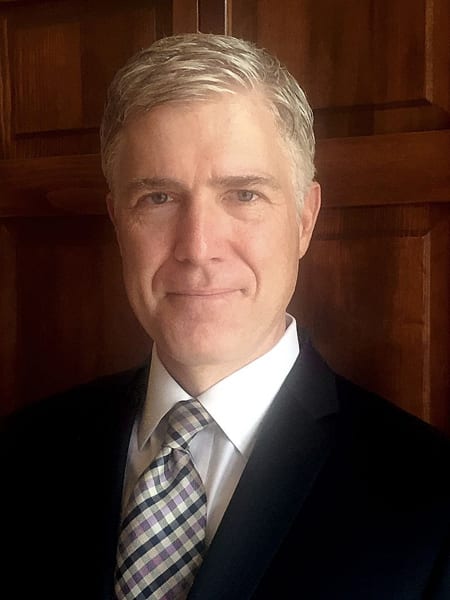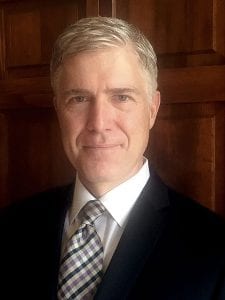SCOTUS nominee has history of anti-LGBT rulings

On Tuesday, Jan. 31, Donald Trump nominated Judge Neil Gorsuch to be an Associate Justice of the United States Supreme Court to replace Justice Antonin Scalia.
Gorsuch sits on the 10 Circuit Court of Appeals in Denver.
Here’s how he ruled on some issues related to the LGBT community, according to research done by the Williams Institute.
Druley v. Patton: Judge Gorsuch joined an unpublished opinion ruling against a transgender inmate’s constitutional claims seeking hormone treatment and re-assignment from an all-male facility.
Kastl v. Maricopa County Community College District: Judge Gorsuch, sitting by designation on the U.S. Court of Appeals for the Ninth Circuit, joined an unpublished opinion that, while recognizing that a transgender person can state a claim for sex discrimination under Title VII based on a theory of gender stereotyping, ultimately ruled against the plaintiff. The employer had barred the plaintiff from using the female restroom until completing gender-confirmation surgery. The court held that “restroom safety” was a non-discriminatory reason for the employer’s decision.
Hobby Lobby Stores v. Sebelius: Judge Gorsuch joined an opinion in favor of companies alleging that the Affordable Care Act’s contraception mandate violated their religious rights under the federal Religious Freedom Restoration Act (RFRA). Judge Gorsuch authored a concurrence to explain his expansive view of religious liberty claims under RFRA.
Rebecca Isaacs, Executive Director of Equality Federation said, “Supreme Court Justices should be able to uphold the constitution without allowing personal prejudice against any group of people to cloud their decisions. Mr. Gorsuch has a troubling history of working against fairness for LGBTQ Americans.”
Lambda Legal CEO Rachel Tiven said, “We absolutely must not confirm a Supreme Court nominee who has ruled that the religious beliefs and moral judgments of employers can be forced upon their employees. It is a short hop from restrictions on birth control to restrictions on the intimate relationships and health care needs of LGBT people.”
















